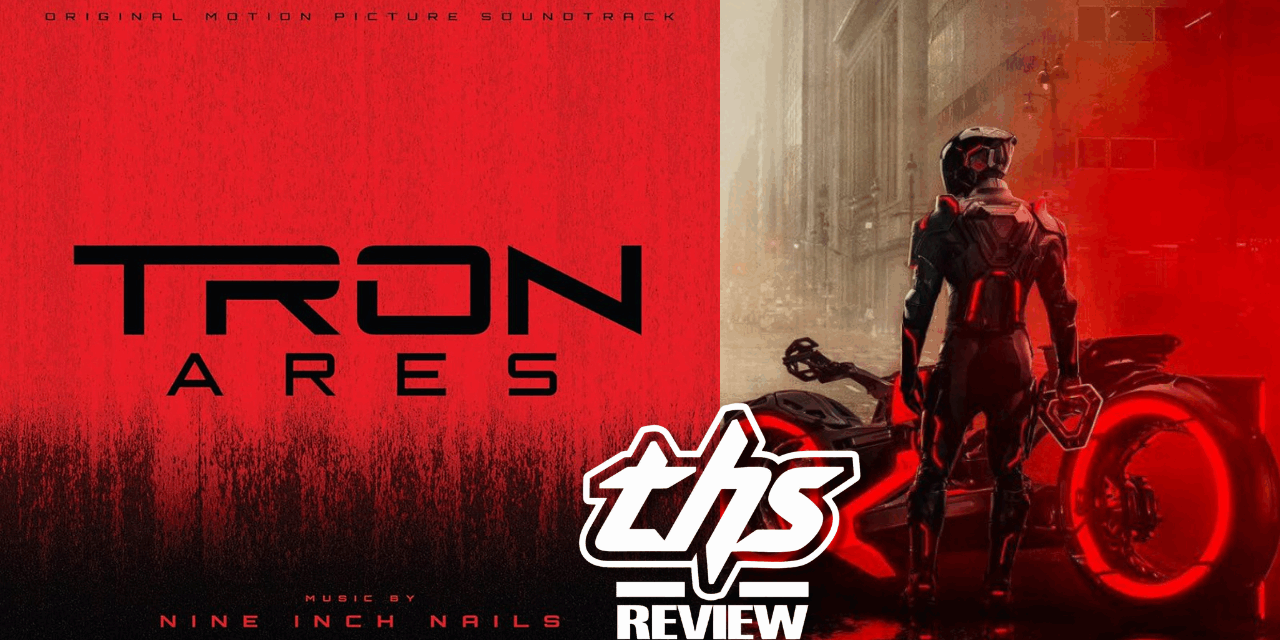With each installment in the long-running Tron franchise, the tone of the visuals and music have changed the scheme and altered the mood. Wendy Carlos’ 1982 original locked into the religious fervor meets arcade game brief of the original epic, while Daft Punk and Joseph Trapanese added their stamp with tunes that reflected awe, corruption, and sacrifice. So when Tron: Ares was announced, with the French techno duo disbanded, one had to wonder where the new sound would come from.
I’ll admit, Nine Inch Nails’ announcement didn’t naturally fit at first; but that was really a brand difference. Composers Trent Reznor and Atticus Ross had already made a name for themselves in film scores; but being credited by their band’s name seemed to denote a difference. After listening to their work for director Joachim Rønning’s three-quel, I totally get why they made that move – and I can say that without question, they’ve stuck the melodic landing.
Tron: Ares Is A Nine Inch Nails Album That Just Happens To Be A Film Score
If you were to have played the Ares score (now available through Interscope Records) for me without any knowledge of what I was hearing, I’d still tell you that it’s an album I’ll be keeping in heavy rotation. Reznor and Ross’ musical abilities transcended genre from day one – through their Academy Award-winning score to The Social Network. Winding through everything from Soul to Challengers on the road to Tron: Ares, the only real “novelty” to speak of here is that this music absolutely functions as a stand-alone Nine Inch Nails record.
What also surprised me is the fact that there’s not one, but four songs with Trent Reznor’s vocals present on Tron: Ares. The full range of both his voice and the band’s sound are represented, with the single “As Alive As You Need Me To Be” being a raging battle cry of sorts. Meanwhile “I Know You Can Feel It” is eerie & foreboding, almost worthy of a slow burn horror movie, while “Who Wants To Live Forever” is somber and practically romantic.
As for “Shadow Over Me,” the closing track closes the loop as a vocal enhanced version of the first cue, “Init” – and it does so on a note that really has me wondering if Tron: Ares’ ending is going to be as rosy as one would hope.

Trent Reznor And Atticus Ross’ Score Is An Engrossing Tribute/Continuation Of The Series
Going into this album, I knew that our new Tron score was not going to be an orchestral hybrid similar to Tron: Legacy’s iconic score. Trent Reznor promised that there would not be an orchestra present on Ares’ soundtrack, and that promise was delivered in full. That doesn’t mean there isn’t some traditionally sounding music here, as there’s plenty of Nine Inch Nails’ signature somber piano stylings – highlighting the moments of introspection they were aiming for. (“Echoes” and all tracks that it inspires are proper examples of that arena of feeling.)
The greatest compliment that can be paid to Nine Inch Nails’ work on Tron: Ares is that they honor the common thread of experimentation in this series’ musical accompaniment, while also staying true to their own sound. Sharp eared listeners might agree with me in this respect, as “As Alive As You Need Me To Be” seems to be built as a call and response to Daft Punk’s “End Credits” theme from Legacy. Not to mention Wendy Carlos’ DNA is strong in “100% Expendable” and “Ghost in the Machine”; though Trent Reznor and Atticus Ross seem to be pulling from more of her Kubrickian contributions in tracks such as those.
Tron: Ares score isn’t pretending to simply be “a Tron album,” nor do the actual vocal backed songs feel like pre-requisite awards winners and Billboard hits. Rather, it fits into the world as a new entry that doesn’t force itself into the franchise, but rather earns its place. Even without knowing the story, you can feel the thread of a cohesive tale winding through this album, so it may end up being one you often sit through in its entirety.

Final Thoughts/Highlighted Tracks For Tron: Ares
For as popular “As Alive As You Need Me To Be” has become, I think “Interceptor” could overtake it, as it’s basically a stripped down and danceable version of that tune’s structure. If you hit “Building Better Worlds” in one sitting, then you’ll be locked in through the rest of the album. Whether you’re a Tron fan, a Nine Inch Nails fan, or just someone who loves music evocative of digital life (and its many pitfalls), this album is a must.
In a world where movie scores can get by with just accompanying the images on screen, having composers that know how to deliver a work you can listen to outside of that context is an asset. Between their experience as a band, and as film composers, our Nine Inch Nails’ duo continues to prove themselves as maestros who can do just that.
For more on Music, make sure to check back to That Hashtag Show.





